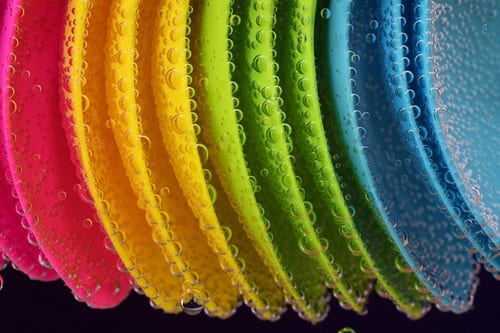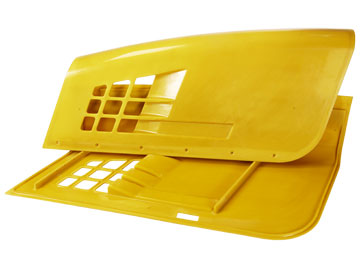Osborne Installs Automated Fiberglass Cutting System
May 24, 2017
The Benefits and Limitations of Injection Molding
November 20, 2017Top Impact Resistant Plastics & Their Advantages
 Plastics are generally tough, corrosion and chemical resistant, lightweight, easy to fabricate, and less expensive when compared to alternative materials like metal. As with any manufacturing material, there are advantages and disadvantages to the different properties each material might have. Although there are many impact resistant plastics to choose from, there are a few that excel in their respective applications. Below we discuss the potential for three of the most common impact resistant plastics.
Plastics are generally tough, corrosion and chemical resistant, lightweight, easy to fabricate, and less expensive when compared to alternative materials like metal. As with any manufacturing material, there are advantages and disadvantages to the different properties each material might have. Although there are many impact resistant plastics to choose from, there are a few that excel in their respective applications. Below we discuss the potential for three of the most common impact resistant plastics.
ABS Plastic
ABS (acrylonitrile butadiene styrene) is a widely used thermoplastic polymer found in everything from the popular Lego® toys to automotive parts. The heat at which ABS plastic is molded affects its final properties, with low temperatures yielding more impact resistance and high temperatures yielding more ultimate heat resistance.
Advantages:
- Good machinability
- Low end of the price scale
- Great impact resistance
- Good strength and stiffness
- Wonderful aesthetic qualities
- Easy to glue and paint
Disadvantages:
- Damaging to environment (oil based)
- Not suitable for use with food
Applications:
- Luggage
- Appliance housings
- Power tool housings
- Camera bodies
- Tool Boxes
- Golf clubs
- Car bumpers
Polycarbonate Plastic
Polycarbonate plastic is a thermoplastic polymer that can be made to be completely translucent (like glass). Because of its ability to be made in grades that are see-through, this plastic is commonly used as a less brittle glass alternative.
Advantages:
- Excellent toughness and stiffness
- Great electrical insulation
- Easy to machine, fabricate and thermoform
- Bonds well with solvent cements
- Excellent optical clarity
Disadvantages:
- Expensive
- Not scratch resistant
Applications:
- Skylights
- Signs (Indoor and Outdoor)
- Machine Guards
- Eye glasses
- Displays and graphic holders
- Face shields
- Architectural glazing to protect Federal and Government buildings, medical facilities and subway/train/bus stations from vandalism
pDCPD Plastic
Unlike ABS and polycarbonate, pDCPD is a thermoset plastic (see the differences between thermoplastics and thermosetting plastics) which makes it structurally more resistant to extreme temperatures. Products made with thermoset plastics are also subject to a different manufacturing process, which has made pDCPD molding an increasingly popular choice for products that require the best corrosion, heat, and impact resistance.
Advantages:
- Excellent impact resistance
- Excellent corrosion resistance
- Excels in a wide range of temperatures
- Resists melting and freezing
Disadvantage:
- Non-recyclable, yet low environmental impact
Applications:
- Construction and agricultural equipment
- Buses and trucks (body panels)
- Wastewater system components
- Military equipment
- Waste containers
- Electrolyser cell covers
- Butterfly valves



